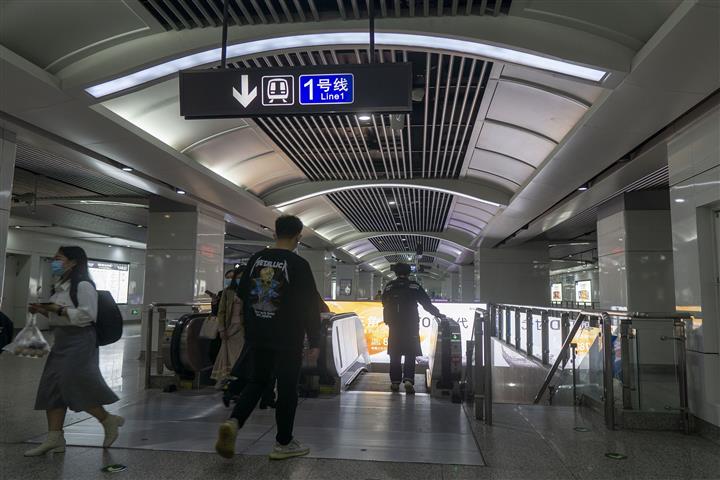 Chinese City of Ningbo Offers Free Metro Rides in Evenings, Public Holidays to Spur Consumption
Chinese City of Ningbo Offers Free Metro Rides in Evenings, Public Holidays to Spur Consumption(Yicai Global) Feb. 15 -- Ningbo, an industrial hub in China’s southeastern Zhejiang province, is making journeys on its five metro lines free after 8 p.m. and on public holidays to stimulate the city's night-time economy and boost holiday spending.
The policy, which will run until June 30, will help the city’s economic development during night-time and public holidays, and promote stable consumption growth, according to the official website of Ningbo Rail Transit.
Free rides will deny the metro operator some revenue, but it will bring many economic and social benefits, promoting a range of sectors, including restaurants, entertainment, shopping malls, and supermarkets, Ding Changfa, an associate professor at Xiamen University's economics department, told Yicai Global.
Ningbo metro carried 700,000 passengers a day on average last year, according to transport ministry data.
Consumption in China recovered well following the easing of Covid-19 controls, said Peng Peng, executive chairman of the Guangdong Reform Research Association. The increased passenger flow during the Chinese New Year holiday, along with the rebound of the restaurant sector, showed that there is still great potential and space for consumption to expand, Peng added.
Many regions in China have recently introduced measures to help the night-time economy. On Feb. 6 Hunan province proposed to give subsidies of up to CNY500,000 (USD73,215) to night-time consumption areas. In Shandong province each county should build at least one special night-time spot to boost the economy by the end of 2025, a recent official document stated.
Shanghai and Nanchang, capital of Jiangxi province, also put out similar notices to encourage the night-time economy.
The night-time economy had a sound layout before the epidemic, and it is easier for it to recover, Peng noted. To further expand night-time consumption, local governments should provide supporting services, such as public transport, and focus on security issues to create a healthy consumer environment, Peng added.
Editors: Shi Yi, Martin Kadiev